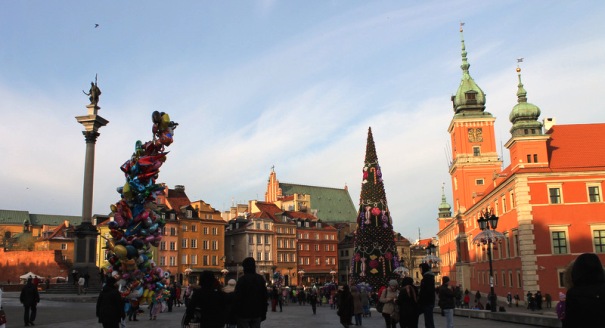2013 was a crucial year for Poland’s foreign policy. It got a chance to position itself as a major player within the EU, although “its” Eastern Partnership (EaP) initiative did not fulfill the expectations related to the promotion of European values and interests in post-Soviet states. The participation of Francois Hollande and David Cameron at the Vilnius Summit, however, shows that there is room for potential cooperation toward a unified voice concerning the initiative which, thus, might further boost Polish influence in Europe.
2014 is important for Polish foreign policy for two reasons. Firstly, it should manifest the serious continuation of the focus on Eastern Europe which Poland should pursue while understanding EU’s and its own failures and demonstrating the will to fix them. Secondly, next year will be a great time to show the so-called Polish “historical foreign policy” functions and may positively affect Warsaw’s relations with its neighbors. 2014 will be the anniversary year for the beginning of the Second World War (1939), the Round Table talks that co-led to the end of the Cold War (1989), as well as Polish NATO (1999) and EU (2004) accessions. All of the above events are connected to Poland’s relations with its two most powerful neighbors—Germany and Russia.
Warsaw’s foreign policy in 2014—if conducted correctly—could be great for Poland from the image perspective. The success story based on a transition to a market economy and to a country respecting human rights exemplified since 1989, can turn Poland into a poster child for the post-Soviet states, boosting the soft power of EU’s values and norms. The anniversary year should show that Warsaw remembers about the challenges it faced with its neighbors before but that it can open a new chapter and focus on cooperation. Bragging about who has had worse or basing the current policies strictly on history and past wounds (the Polish martyrdom is still very often emphasized in the Polish political and historical discourses) might negatively impact establishing trustful relations with most of Poland’s neighbors (Russia, Germany, Ukraine, and Lithuania).
The problem, however, with Polish foreign policy is the inability of the domestic forces to speak with one voice. Especially now, after the last of the three non-electoral years (in 2014 there will be the European Parliament elections), most political parties will concentrate on short-term foreign policy. Jarosław Kaczyński’s Law and Justice party will underline its increasing skepticism toward any cooperation with Russia (as after Foreign Minister Radek Sikorski signed a joint cooperation declaration between Poland and Russia last week). Kaczyński will probably, again, boycott any invitations by President Bronisław Komorowski to cooperate on a unified foreign policy strategy. Prime Minister Donald Tusk will concentrate on internal politics and his own party, leaving most of the foreign affairs to Foreign Minister Sikorski, who, as one of the unofficial candidates to replace Catherine Ashton as the EU’s High Representative, will probably not be too critical with regard to Brussels. The left side of the political landscape will also, often uncritically, emphasize its devotion to the EU on the “who loves Brussels more” basis (e.g. who wants to introduce the Euro earlier), undermining Sikorski’s policies.
Poland could use its “historical foreign policy” in 2014 to present its success story and transition only if it speaks as a unified actor. This, however, will probably not happen, hurting the Polish raison d’état. Not only will it weaken the possible voice that Warsaw could have on the international arena. It will also make people think of the collapse of the Berlin Wall, and not Lech Wałęsa, as a symbol of the 1989 changes. And this contradicts the goal of preserving the national remembrance and heritage.
Paweł Dariusz Wiśniewski holds an M.A. in World Politics from the Moscow State Institute of International Relations, the Humboldt University of Berlin, and the Free University of Berlin. Formerly, he worked on the Eastern Partnership and Russia at the president of the European Parliament’s cabinet and at the Carnegie Moscow Center.

%20CROP.jpg)



